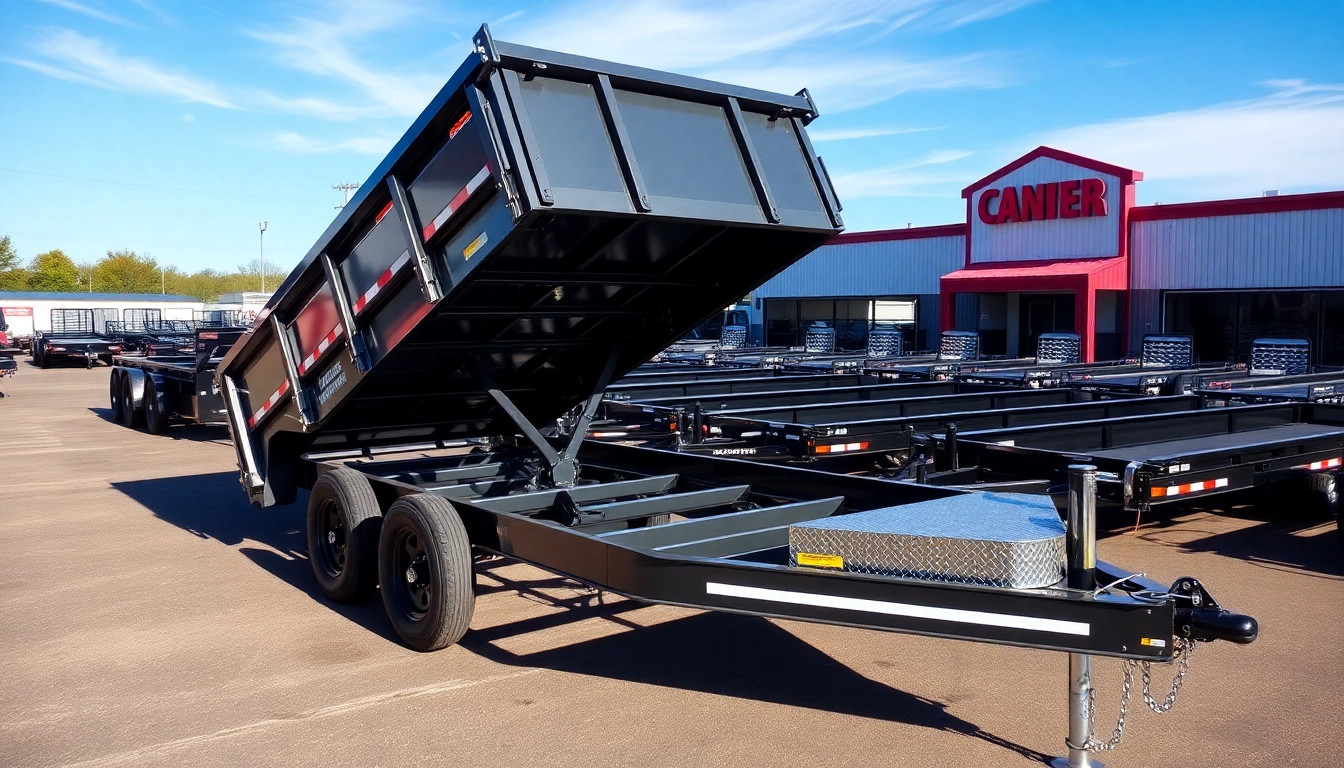Understanding Wholesale Real Estate Cold Callers
What They Do and Why They’re Essential
Wholesale real estate cold callers play a vital role in the real estate investment landscape. They are the first line of communication between wholesalers and potential sellers, seeking out off-market properties that can be acquired at a lower price and resold for a profit. This process involves contacting property owners directly to gauge their interest in selling, generating leads that can lead to lucrative deals.
Cold calling is essential for wholesalers because most property owners are not actively looking to sell their homes. Traditional methods like email and social media are often ineffective for high-quality leads, which is why a proactive approach is crucial. By contacting potential sellers directly, wholesale real estate cold callers can uncover hidden opportunities that competitors may overlook.
Key Skills of Effective Cold Callers
Effective cold callers possess a unique set of skills that enable them to build rapport with potential sellers while efficiently gathering vital information. Here are some key skills that distinguish successful callers:
- Strong Communication Skills: The ability to convey messages clearly and persuasively while actively listening to the seller’s needs is crucial.
- Emotional Intelligence: Understanding the emotional drivers behind a seller’s decision to sell, such as financial distress or family circumstances, allows callers to tailor their approaches effectively.
- Resilience: Cold calling involves facing rejection regularly. Successful callers bounce back quickly and learn from each interaction.
- Research and Analysis: Knowing how to analyze market trends, property values, and neighborhood demographics allows cold callers to make informed pitches and identify potential sellers more effectively.
The Impact on Real Estate Investments
The impact of cold callers on real estate investments extends far beyond generating leads. By building a pipeline of motivated sellers, they contribute to the overall health of a wholesaler’s business. When executed effectively, cold calling can:
- Increase the number of viable leads: A steady influx of leads ensures that wholesalers have more opportunities to close deals.
- Enhance negotiation power: Direct conversations allow cold callers to gather information about the seller’s motivations, which can empower wholesalers during negotiations.
- Facilitate faster closing times: By engaging sellers early in the process, wholesalers can streamline transactions and secure properties quickly.
Developing a Winning Cold Calling Strategy
Essential Cold Calling Techniques for Wholesalers
To craft an effective cold calling strategy, wholesalers should employ several essential techniques:
- Preparation is Key: Prior to making calls, thorough preparation is vital. Cold callers should understand the local market, identify target neighborhoods, and have a clear outline of the conversation they wish to have.
- Script Development: Creating a flexible script that serves as a guideline can help callers stay on track. However, it is essential to encourage natural conversation flow to build rapport with potential sellers.
- Building a Contact List: Gathering a list of potential leads is essential. This list can be compiled using various sources such as public records, property listings, and online databases.
- Timing the Calls: Statistically, late mornings and early evenings tend to be the best times to reach potential sellers. Identifying when owners are most likely to be available is crucial for maximizing the chances of successful conversations.
Creating a Compelling Cold Calling Script
A compelling cold calling script is instrumental in converting leads into deals. To create an effective script, consider the following components:
- Introduction: Start with a warm greeting and a brief introduction about who you are and what you do.
- Value Proposition: Clearly articulate the benefits of selling their property to you, emphasizing how you can provide a quick, hassle-free sale.
- Open-Ended Questions: Encourage dialogue by asking questions that prompt sellers to share their thoughts about their property and current situation.
- Addressing Concerns: Be prepared to address common concerns that sellers may have, such as pricing or repair costs.
- Closing the Call: Conclude the conversation by reiterating your interest and asking if they would be open to discussing further. Secure a follow-up appointment if possible.
Targeting the Right Leads for Maximum Results
Not all leads are created equal. To maximize results, wholesalers should focus on targeting the right leads. Here are a few strategies:
- Identify Motivated Sellers: Look for indicators of motivation, such as distressed properties, probate cases, divorce situations, or financial difficulties.
- Focus on Specific Neighborhoods: Identify neighborhoods with high turnover rates or declining property values where sellers may be more willing to negotiate.
- Use Technology: Leverage data analytics and AI tools to identify potential leads based on behavioral patterns and property characteristics.
Avoiding Common Cold Calling Mistakes
Top Errors Made by New Wholesalers
While cold calling can be a powerful tool, there are common pitfalls that new wholesalers must avoid:
- Not Researching Leads: Many new callers fail to adequately research their leads before reaching out, leading to ineffective conversations.
- Being Too Scripted: A rigid adherence to a script can stifle the flow of conversation. Allow for flexibility and natural dialogue.
- Ignoring Feedback: Not incorporating feedback after each call can prevent growth. It’s essential to learn from each interaction.
How to Handle Rejection Effectively
Rejection is an inherent part of cold calling, and how a caller handles it can significantly affect their success. Here are some tips to manage rejection effectively:
- Stay Positive: Maintaining a positive attitude is crucial. Understand that rejection is not personal and is a common experience in sales.
- Learn from Each Interaction: Each rejection offers an opportunity to learn. Analyzing what went wrong can help improve future calls.
- Practice Self-Care: Incorporate practices like meditation or exercise to bolster resilience and manage stress effectively.
Refining Your Approach Based on Feedback
To continually improve cold calling performance, it’s vital to refine the approach based on feedback and experiences. This includes:
- Regular Review Sessions: Schedule time to assess call outcomes and identify patterns in successful versus unsuccessful calls.
- Soliciting Feedback: Consider asking colleagues or mentors for constructive feedback on your approach and script.
- Adapting Strategies: Be willing to evolve. Use insights gained from calls to adapt strategies for better outcomes.
Tools and Resources for Effective Cold Calling
Best Software and Platforms for Cold Callers
A variety of software and platforms can enhance the cold calling process, making it more structured and efficient:
- CRM Systems: Customer Relationship Management tools like Salesforce or HubSpot help manage leads, track interactions, and ensure follow-ups.
- Dialers: Auto-dialers can increase efficiency by reducing the time taken between calls.
- Lead Generation Platforms: Services like PropStream or REIPro provide valuable data for potential leads, helping cold callers target their search more effectively.
Effective Lead Generation Techniques
Generating quality leads is essential for successful cold calling. Effective techniques include:
- Online Marketing: Using targeted ads on social media or Google to generate leads actively seeking to sell their property.
- Networking: Building relationships with other real estate professionals can lead to referrals and new contacts.
- Community Engagement: Getting involved in local events can yield leads through personal interactions.
Tracking and Measuring Your Cold Calling Success
To determine the effectiveness of cold calling efforts, tracking and measuring success is paramount:
- Utilize Metrics: Key performance indicators (KPIs) like call volume, conversion rates, and average time to close can provide insights into effectiveness.
- Feedback Mechanisms: Implement systems to collect feedback from leads to understand common questions and objections.
- Reporting Tools: Use reporting tools available in CRM systems to track overall performance and identify trends over time.
Success Stories from Top Wholesale Real Estate Cold Callers
Real-Life Examples that Inspire
Success in cold calling can often be illustrated through real-life examples. For instance, John, a new wholesaler, employed a systematic cold calling strategy targeting vacant properties in his local area. Through consistent effort and by diligently following up, he secured his first deal within three months, earning a profit that encouraged him to expand his business.
Successful cold callers often report that preparation and persistence were fundamental to their achievements, highlighting the importance of developing a structured approach tailored to their market’s needs.
Learning from Experienced Professionals
Seasoned cold callers emphasize the importance of learning and adapting. They often share that mentorship and networking played pivotal roles in their growth. For example, Sarah, who has been in the industry for over a decade, credits her ongoing success to attending workshops and networking events where she gained insights that refined her techniques.
How to Implement Insights for Your Business
To implement insights effectively, consider the following steps:
- Continuous Learning: Stay informed about market trends and hot topics within the industry to adapt strategies effectively.
- Mentorship: Seek guidance from experienced professionals who can provide insights tailored to your unique business challenges.
- Timely Implementation: Quickly implementing learned strategies can help maintain momentum and capitalize on market shifts.














Leave a Reply